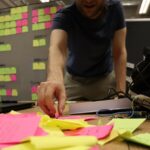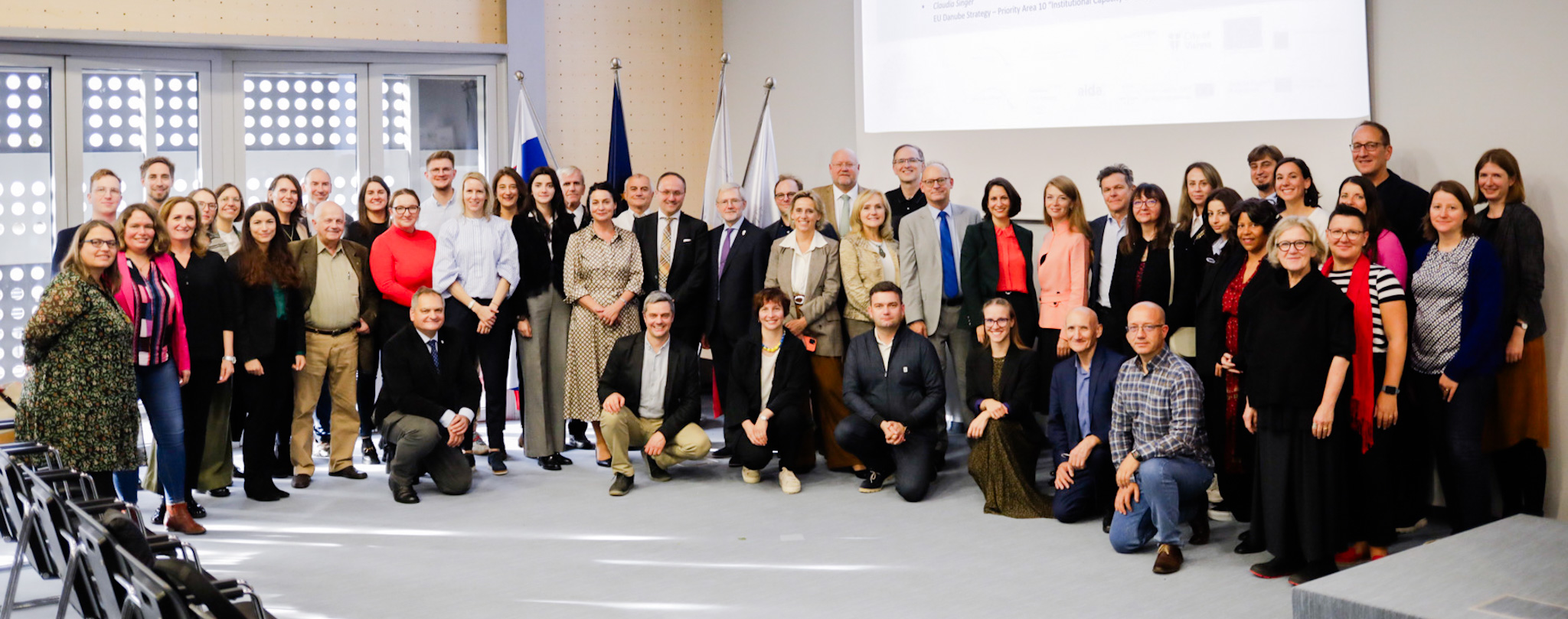In the ever-evolving landscape of European geopolitics, the journey of countries towards European Union (EU) membership remains a significant and dynamic narrative. Ukraine, in particular, has taken significant strides towards EU integration in recent years.
Against this backdrop, on October 23, 2023, the 10th Danube Participation Day was held at the University of Ljubljana, Slovenia, in conjunction with the 12th EUSDR Annual Forum. This annual event provided a platform to discuss and explore the theme “Ukraine’s recovery towards EU membership” and how the EU Danube Region Strategy can play a pivotal role in strengthening civil society and local actors to facilitate Ukraine’s sustainable recovery and EU membership. This article delves into the event’s highlights.
The day kicked off with participants’ arrival and registration, followed by the welcoming and opening session. Distinguished speakers including Andreja Jaklič, Vice-dean for Research at the Faculty of Social Sciences, University of Ljubljana, and Marko Štucin, State Secretary for European Affairs, International Law and the Protection of Interests at the Ministry of Foreign Affairs of the Republic of Slovenia, set the stage for a day of engaging discussions.
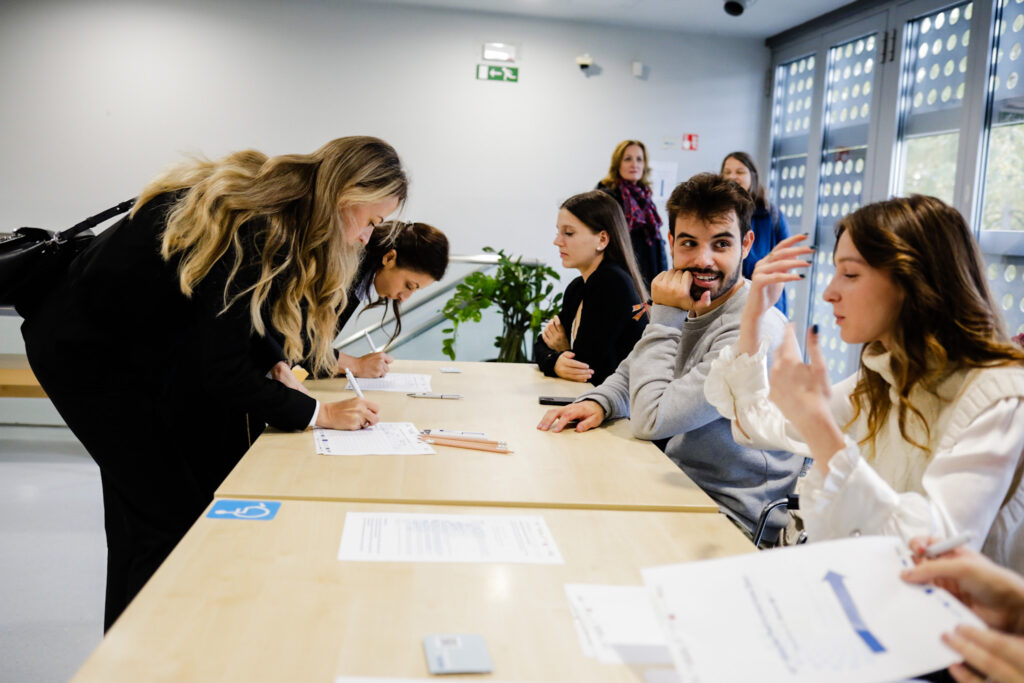
Creating a Vision for Participatory Recovery
Morning Sessions: Welcome and Setting the Scene
The initial discussions aimed to craft a vision for participatory recovery towards EU membership in Ukraine and Moldova. This vision-building process required a shared understanding of strategic frameworks, policies, and key terms related to these countries’ transition towards EU membership. Claudia Singer-Smith, from the EU Danube Region Strategy – Priority Area 10 “Institutional Capacity & Cooperation” in the City of Vienna, offered a brief and straightforward definition of these concepts.
The scene was then set for the formulation of a joint vision on participatory recovery towards EU membership. This vision is crucial for Ukraine’s transition and was presented by Nadja Afanasieva from the Ukrainian Institute for International Politics (UIIP), Johan Magnusson from the European Commission – DG REGIO, and Claudia Singer-Smith from the EU Danube Region Strategy.
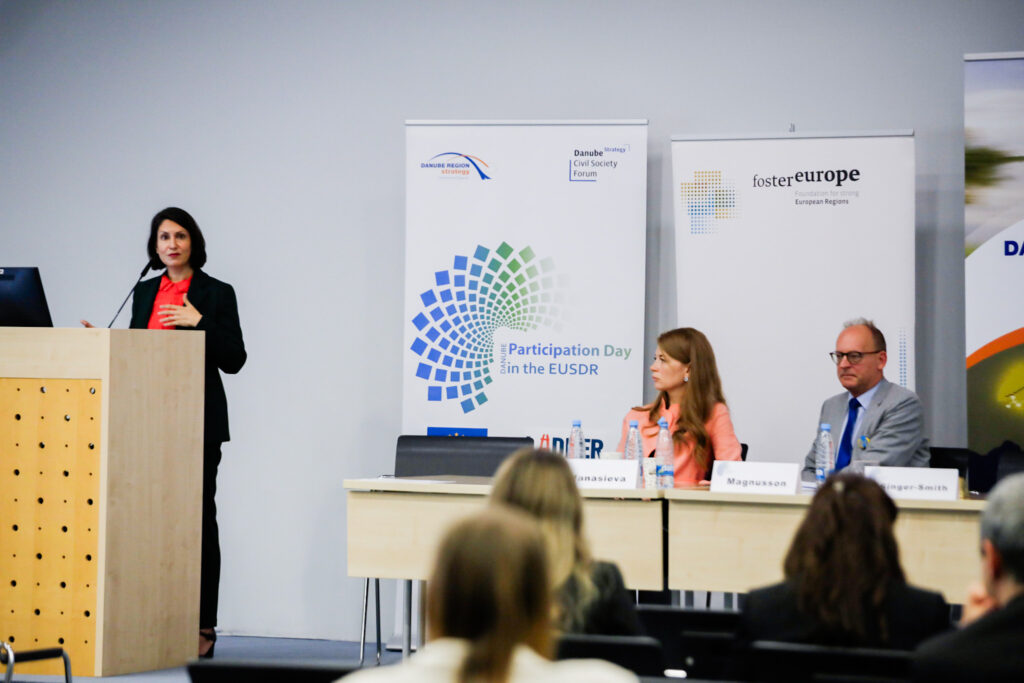
Afternoon Sessions: Participatory Recovery in Action
The afternoon sessions featured introductory panel discussions, focusing on different aspects of participatory recovery.
Panel I: Sustainable Recovery – Shaping Modern European Development
László Balatonyi from the Ministry of Foreign Affairs and Trade, representing EUSDR Priority Area 5 “Environmental Risks,” and Bohdan Vykhor from WWF Ukraine, discussed sustainable recovery and modern European development. Oleg Dyakov, from Rewilding Ukraine, moderated this panel.
Panel II: Democratic Recovery – A Vision for Boosting Good Governance
Mathilde Perrin from the Council of Europe, Antonella Valmorbidia from the European Association for Local Democracy (ALDA), and Igor Studennikov from the Centre for Regional Studies delved into the concept of democratic recovery and its role in fostering good governance. Stefan August Lütgenau, representing the Danube Civil Society Forum/Foster Europe, guided this panel.
Panel III: Social Recovery – Strengthening a Socially Inclusive Future
Nadja Afanasieva, representing EUSDR Priority Area 9 “People and Skills,” Niombo Lomba from the State Ministry of Baden-Württemberg, and Laura Istrate from the Social NGO Network explored social recovery and its importance in creating a socially inclusive future. Katja Vonhoff from Diakonie Baden moderated this panel.
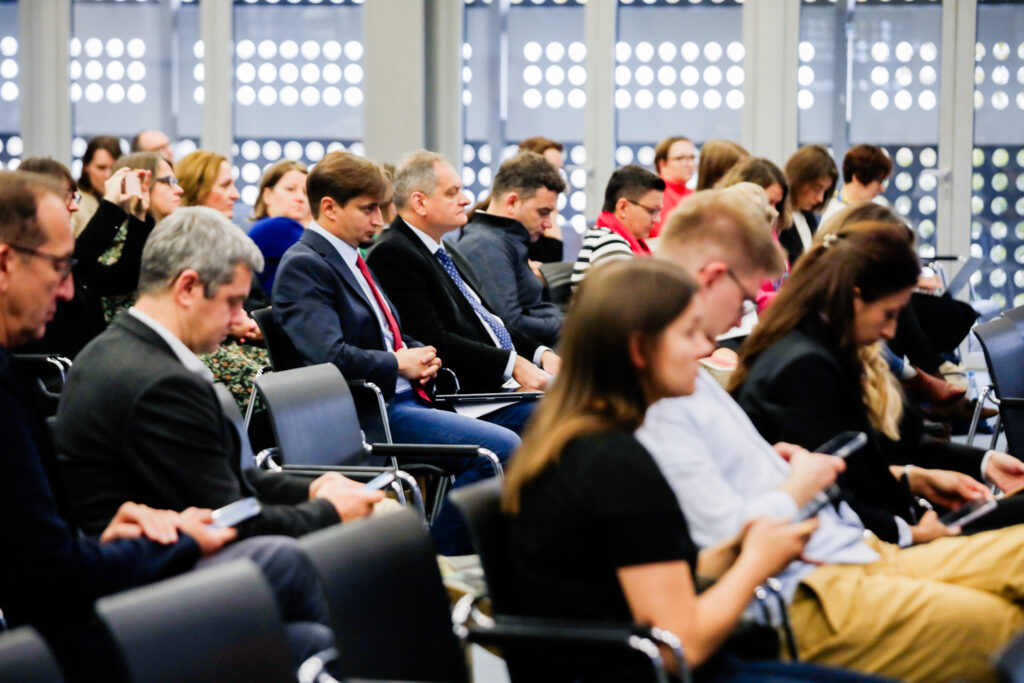
Workshops: Shaping the Priorities
From 14:45 to 15:30, participants engaged in workshops aimed at defining up to three main messages and priorities for the recovery/EU accession process that the EU Danube Strategy can contribute to.
Shaping Participatory Transition
The event then culminated in an exchange of the main messages and priorities from the workshops from 15:30 to 16:00, moderated by Claudia Singer-Smith.
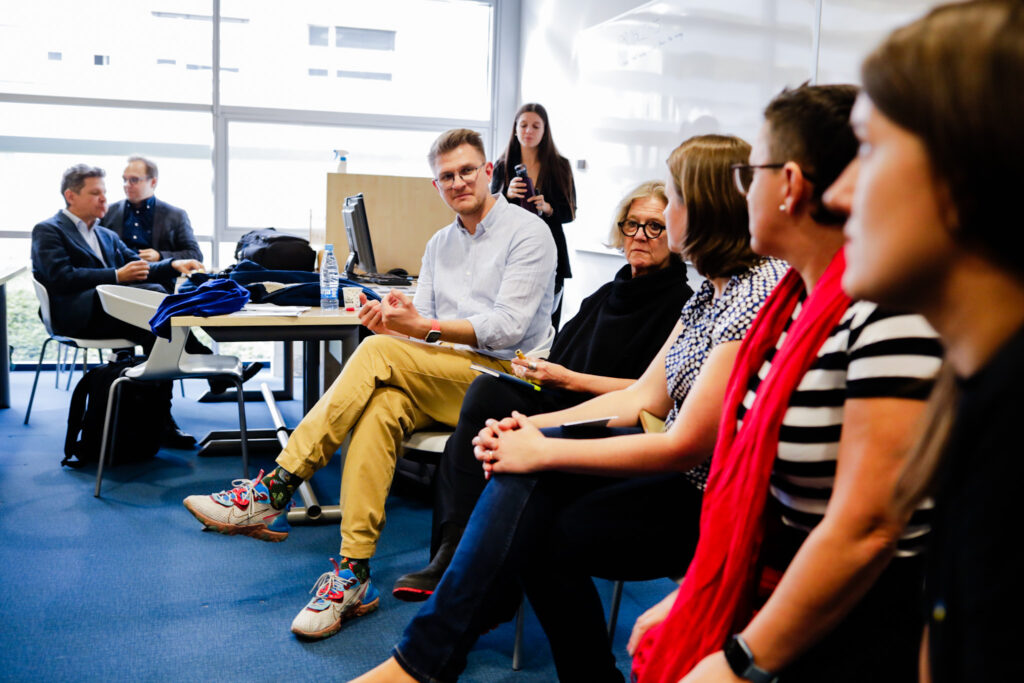
Closing Session and Passing on the Bell
The final session, provided an outlook into the Austrian Presidency of the EU Danube Strategy by Harald Stranzl, Ambassador from the Federal Ministry for European and International Affairs of the Republic of Austria. The symbolic passing of the bell was conducted by Miro Haček from the University of Ljubljana and Stefan Lütgenau from Danube Civil Society Forum/Foster Europe.
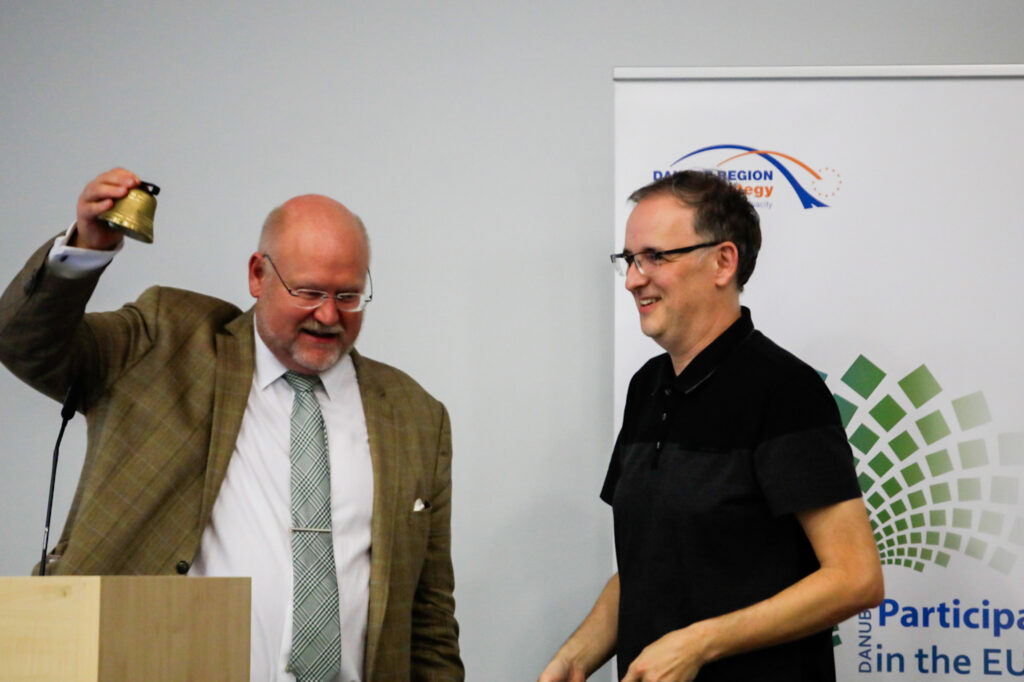
In summary, the 10th Danube Participation Day served as a significant platform for discussing Ukraine’s journey towards EU membership and the important role the EU Danube Strategy plays in facilitating this process. The event emphasized the importance of collaboration, good governance, sustainable development, and social inclusion in Ukraine’s recovery. It is events like these that drive meaningful change and foster deeper cooperation between EU member states and accession countries on the path to a more united Europe.



